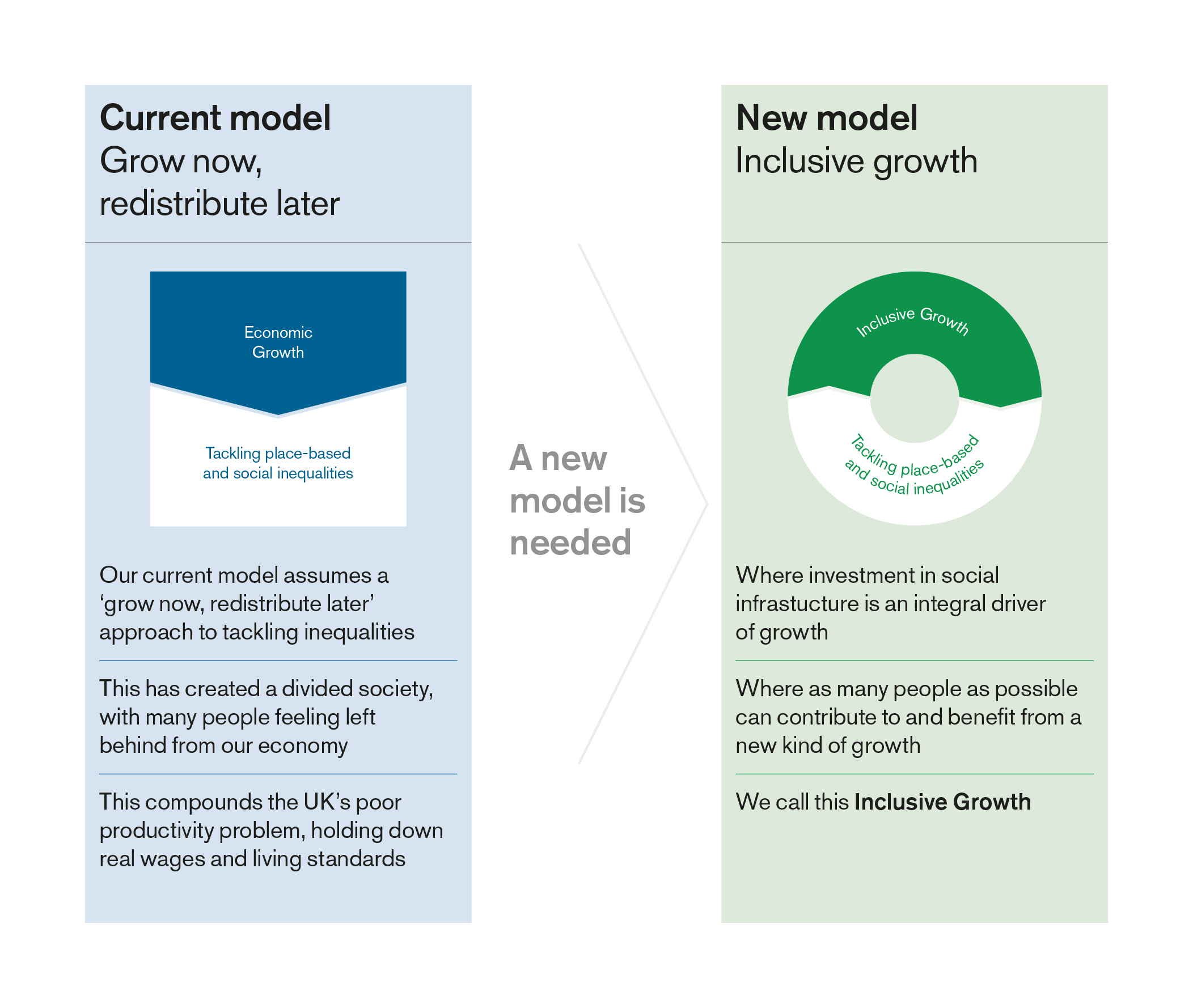“The objective of our economic policy,” said the chancellor, is to support ordinary working families, and to build an economy that works for them.” Just 24 hours after the RSA Inclusive Growth Commission published its final report there were signs that the government seems to have taken on board the thrust of our argument. Inclusive growth was central to this Budget, and the term enjoyed a name-check.
As the chancellor said, the UK has enjoyed the fastest growth in the G7 with trend in rising employment forecast by the Office for Budget Responsibility to continue to 2021. But he also acknowledged that top line statistics disguise the reality for many people who are increasingly employed in insecure, low-wage, low skilled jobs. This structural shift in our labour market is compounding the UK’s long-term productivity problem, which – particularly since the financial crash – has held down real wages and living standards. Fifty five per cent of households living in poverty are in work. We have not yet built a country that works for everyone. We are not creating inclusive growth.
Over the last 12 months the Inclusive Growth Commission has explored practical ways to enable as many people as possible to contribute to, and benefit from a new kind of inclusive economic growth. Travelling across the country, talking to leaders in business, civil society, central and local government, and citizens, it is clear that scale of the challenge is huge and the solutions inevitably complex and difficult to implement.
But as government prepares to trigger article 50, it has to respond to the underlying problem that sparked our inquiry months before the referendum result; too many families, communities and places feel left behind by our economy. Inclusive growth is our only chance to heal the divide and people need to feel its effects on the ground.
To achieve this, the commission calls for a national strategy for inclusive growth, agreed and supported by the centre, devised and implemented by local actors. The first of the commission’s five principles for inclusive growth is therefore about forming a shared, binding mission that extends not just to central and local government, but also draws in business, civil society and communities.

Long-term, flexible finance, enabling places to invest at scale was another of our five principles. Here the chancellor dropped bonus points in putting off a proper announcement on business rates. A statement ‘in due course’ is not good enough – either for firms or local government, who are to rely on the £25bn the commercial property tax raises per year.
More encouragingly, however, the Budget took a leap on from the last Autumn Statement, which was almost exclusively concerned with physical infrastructure. This time around there was a concerted nod to social infrastructure, including £2bn for social care – failures in which are crippling local government and other public services – as well as skills and technical education, which the chancellor highlighted as “key to inclusive growth”.
By his own admission the chancellor is not the first to recognise we need to improve our skills base to drive productivity. Efforts to implement the recommendations of the Sainsbury Review are welcome. But there’s much more to be done.
The commission recommends new ‘social contracts’ between central and local government that go beyond existing devolution deals. These contracts would give combined authorities flexibility over all their economic and social policy resource and capital spend so they can deliver inclusive growth objectives agreed with central government. This is a radical proposal that is based on extending the principle of joint commissioning in health and social care trialled in Greater Manchester. The commission believes that the same approach could be applied in other places and policy areas – again, particularly in skills and technical education.
Many of commission’s recommendations will be challenging for central and local government, but the time has come to shift away from a ‘grow now, redistribute later’ economic model that has failed to work for all. It is almost customary now to expect policy u-turns in the days after a Budget, but expect the case for inclusive growth to remain. Politically and economically there is no other option to drive up productivity and create a “stronger, fairer, better Britain”.




















